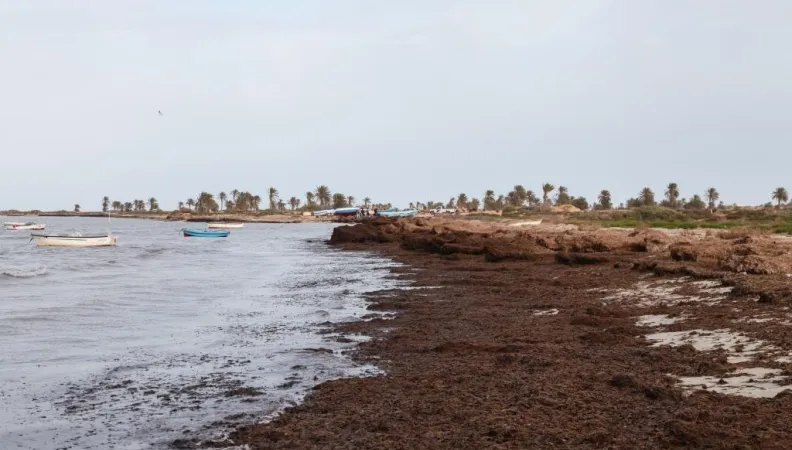Share the page
Depolluting the Mediterranean
Project


-
Project start date
-
Status
Ongoing
-
Project end date
-
-
AFD financing amount
-
€ 60000000
-
Country and region
-
Location
-
Tunisia
-
Type of financing
-
Beneficiaries
-
ONAS
The Mediterranean is a semi-enclosed sea with a rich biodiversity and is a major crossroads for trade. It is subject to intense pressure. The project aims to preserve the quality of water on Tunisia’s Mediterranean coast. Populations will also benefit from access to an effective sanitation service provided by the National Sanitation Office (ONAS).
Context
The Mediterranean Sea is one of the world’s biodiversity hotspots. While it only covers 0.8% of the world’s surface area, it is home to 7 to 8% of known marine species. It is subject to intense pressure related to human activity, which is a source of various types of pollution. It is estimated that 80% of the pollution comes from industrial emissions, urban waste and urban wastewater.
The protection of the Mediterranean Sea is an increasing regional concern and has given rise to the “Horizon 2020” Initiative, which aims to reduce the various sources of pollution by 2020. Tunisia’s Mediterranean coast is not spared: the impacts of pollution can be felt on natural wetlands, tourism (deterioration in the quality of bathing waters) and fisheries resources. The connection rate is high (90% of effluents are collected), but the performance of wastewater treatment plants on this coast needs to be improved: they are the oldest, most saturated, and the ones which require the most investment. Industrial pollution control also remains a crucial issue: a number of industries discharge their effluents into the collectors of domestic networks without appropriate pre-treatment. These shortcomings lead to discharges from certain plants being non-compliant.
Description
The DEPOLMED project involves assisting the National Sanitation Office (ONAS) in the implementation of the first part of an ambitious investment program for sanitation in coastal areas. It provides for:
- The rehabilitation and extension of the 4 coastal wastewater treatment plants in Sud Méliane, Sousse Nord, Jedaida and Kelibia and approximately 540 km of networks, 53 pumping stations and 29,000 connection boxes;
- Capacity building for ONAS in key areas of its mandate: investment project management, infrastructure operation and maintenance, combined with the self-monitoring of discharges from the wastewater treatment plants, industrial sanitation control, communication and public consultation.
Impacts
- Reduction of water pollution and protection of the Mediterranean marine environment: improved or additional installed treatment capacity for domestic effluents of over 115,000 m³ a day;
- Beneficial economic impacts on the populations served and on a number of industries that are sensitive to the pollution of the Mediterranean (fishing and tourism);
- Connection of 60,000 new people and improvement in the service and individual well-being for some 1.2 million people who are already connected;
- Reduction in greenhouse gas emissions: overall carbon footprint of -73,000 teq CO2 a year;
- Impact on climate change adaptation in a context of national water stress: by increasing the volume of water resources which can be mobilized from treated wastewater for groundwater recharge, then irrigation.


